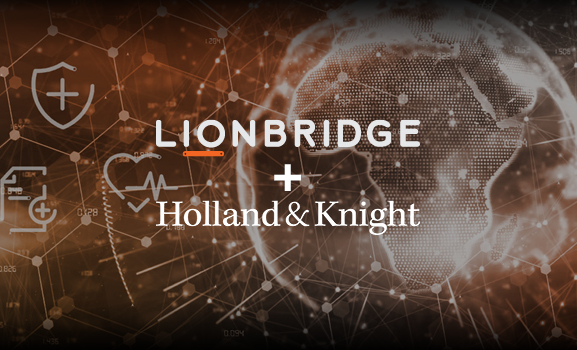- WHAT WE DO
Additional Services

- Industries

Case Study: Multilingual Retail Marketing
New AI Content Creation Solutions for a Sports and Apparel Giant

- RESOURCES

- WHO WE ARE

What We Do Home
Generative AI
- AI Translation Services
- Content Remix
AI Training
- Aurora AI Studio™
Machine Translation
- MT Tracker
Instant Interpreter
Smart Onboarding
Translation Service Models
Content Services
- Technical Writing
- Training & eLearning
- Financial Reports
- Digital Marketing
- SEO & Content Optimization
Translation Services
- Video Localization
- Software Localization
- Website Localization
- Translation for Regulated Companies
- Interpretation
- Instant Interpreter
- Live Events
- Language Quality Services
Testing Services
- Functional QA & Testing
- Compatibility Testing
- Interoperability Testing
- Performance Testing
- Accessibility Testing
- UX/CX Testing
Industries Home
Life Sciences Translations
- Pharmaceutical Translations
- Clinical Trial Translations
- Regulatory Translations
- Post-Approval Translations
- Corporate Pharma Translations
- Medical Device Language Services
- Validation and Clinical
- Regulatory Translations
- Post-Authorization Translations
- Corporate Medical Device Translations
Banking & Finance
Retail
Luxury
E-Commerce
Games
Automotive
Consumer Packaged Goods
Technology
Industrial Manufacturing
Legal Services
Travel & Hospitality
Insights
- Blog Posts
- Case Studies
- Whitepapers
- Solution Briefs
- Infographics
- eBooks
- Videos
Webinars
Lionbridge Knowledge Hubs
- Positive Patient Outcomes
- Modern Clinical Trial Solutions
- Patient Engagement
- AI Thought Leadership
SELECT LANGUAGE:
A critical truth about AI is that, while it knows a lot, AI doesn't know everything. It only knows what it's been trained on. This means AI may lack specific knowledge, especially regarding proprietary or constantly changing information about your brand, its services, etc. You must fine-tune AI via LLM training on specific data — even as that data changes. Ensuring you have a fine-tuned model can become impractical for large or dynamic datasets because AI can't unlearn incorrect or outdated information. When teaching isn't feasible, AI training needs a little help. Training LLMs requires a "cheat sheet" for the knowledge your AI doesn't have.
How Retrieval-Augmented Generation (RAG) Works
Retrieval-Augmented Generation (RAG) allows AI to "cheat" by accessing LLM training data it hasn't yet been trained on. RAG combines three key elements: retrieval, augmentation, and generation.
1. Retrieval*: Imagine having a large stack of cheat sheets, each containing specific information your AI may need. When questions arise, a retriever fetches the most relevant information quickly instead of leafing through every sheet (which is too time-consuming).
2. Augmentation: Once relevant AI training data is retrieved, it can't just be given to AI. The augmenter organizes and prepares the information. It’s similar to when a sous chef sets up for the head cook. This preparation conditions retrieved data for action.
3. Generation: Lastly, AI uses the structured information to generate a response. It leverages the retrieved data to answer questions accurately and efficiently.
RAG is notably powerful because of its efficiency in training LLMs. RAG speeds up AI translation and AI content creation processes and saves computational resources. It achieves this effect by retrieving only necessary data for fine-tuning your AI and using vectors (a mathematical representation of data) to find similarities rather than searching directly. Notably, RAG can significantly reduce costs by speeding up translation and saving computational resources.

The Multilingual Advantage in LLM Training
Bridging linguistics is also a key factor in RAG. Words in different languages can have the same meanings. RAG uses vectors (which transcend language barriers) to understand this variation in meaning. Vectors are mathematical entities that encode meaning. They allow AI to process data across different languages without requiring translations.
AI models don't convert whole words directly into math during LLM training. Instead, they break words into subwords or tokens, similar to how a dictionary breaks words into syllables for pronunciation. This breakdown allows AI to recognize common roots or components shared across languages, facilitating a more universal understanding.
Some AI models are trained more broadly across languages, enabling them to handle multilingual tasks better. These models can break down words, understand subtle contexts, and ultimately connect different languages at a fundamental level. The models are notably adept at cross-language information retrieval.
Practical Applications and Benefits for LLM Training
RAG-powered chatbots, such as RAG-Bot, harness the multilingual capabilities of vectorization models, delivering exceptional performance. This technology allows RAG-Bot to store information in a primary language while being responsive to prompts in multiple other languages. The final effect is seamless, accurate, and context-appropriate replies. The RAG-Bot’s capability significantly reduces the need for businesses to maintain separate datasets for each language they cater to, thereby condensing operations and lifting efficiency.
Furthermore, RAG-Bot can be customized to fit any business’s specific needs and AI training services. It’s an ideal solution for companies seeking to improve customer interaction processes. Organizations can ensure consistent and high-quality user experiences across different languages and regions by implementing RAG-Bot. This approach helps address customer queries effectively, but also strengthens brands’ global reach.

Get in touch
RAG transforms LLM training by helping AI models access and utilize information dynamically. It bridges the language barrier and allows AI models to function efficiently across diverse datasets. For businesses looking to leverage AI solutions, RAG-Bot offers a customizable solution. Ready to see how our AI translation tools provide an innovative way to enhance multilingual interactions and streamline operations? Let’s get in touch.
Fill out our contact form to start a conversation with us.
We’re eager to understand your needs and share how our innovative capabilities can empower you to break barriers and expand your global reach. Ready to explore the possibilities? We can’t wait to help.



